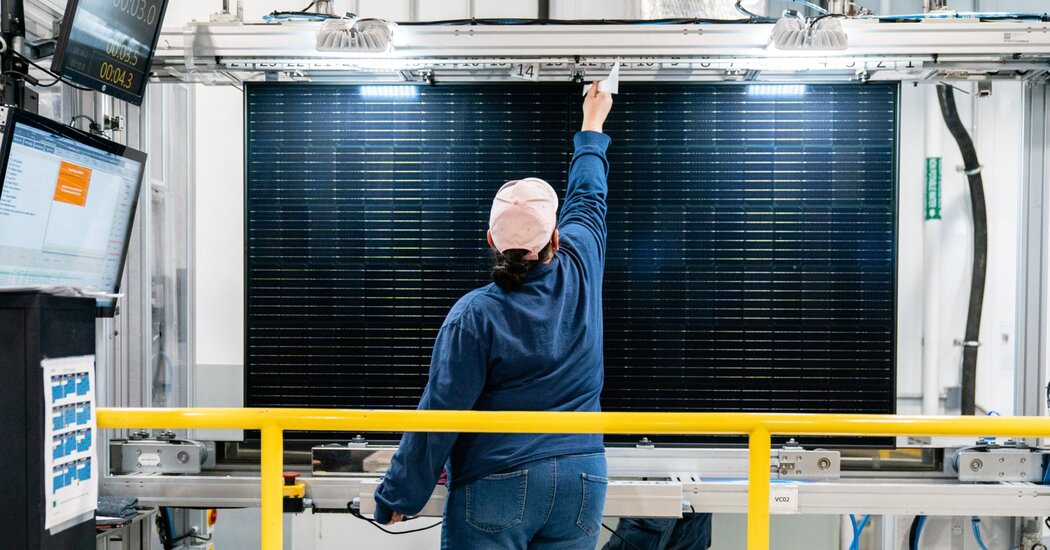
Under the legislation, businesses receive a tax credit at every stage of the supply chain. The act includes an estimated $30 billion in production tax credits to accelerate manufacturing of solar panels, wind turbines, batteries and for the processing of critical minerals. The law also offers an investment tax credit to companies that build factories that produce electric vehicles, wind turbines and solar panels.
How Times reporters cover politics. We rely on our journalists to be independent observers. So while Times staff members may vote, they are not allowed to endorse or campaign for candidates or political causes. This includes participating in marches or rallies in support of a movement or giving money to, or raising money for, any political candidate or election cause.
Those and other provisions are intended to reduce reliance on China, which dominates the supply chain for crucial raw materials and components for batteries and solar panels. In addition to the fear that the United States was losing ground in important technologies, lawmakers have also been concerned that some Chinese producers are using forced labor.
“I wrote and passed into law legislation precisely intended to attract this type of manufacturing,” Mr. Ossoff said in an interview. “It’s the largest solar manufacturing in U.S. history coming to Georgia. This economic and geostrategic competition will continue, but my law has brought the United States back into the fight to secure our energy independence.”
Lawmakers and administrations from both parties have long sought to boost a domestic solar manufacturing industry, including by imposing tariffs and other restrictions on imported solar panels. But such efforts have, so far, achieved only modest results. Most of the solar panels installed in the United States are imported.
The new plant “will bring back our supply chains so we aren’t reliant on other countries, lower the cost of clean energy, and help us combat the climate crisis,” Mr. Biden said in a statement. “And, it will ensure that we manufacture cutting-edge, solar technology here at home.”
The Qcells project and others could reduce U.S. reliance on imports, but not quickly. China and other Asian countries have had a huge head start in assembling panels and producing the parts that go into them. Governments there have also used subsidies, energy policy, trade agreements and other tactics to help domestic producers.
While the Inflation Reduction Act has spurred new investment, it has also raised tensions between the Biden administration and U.S. allies like France and South Korea.




